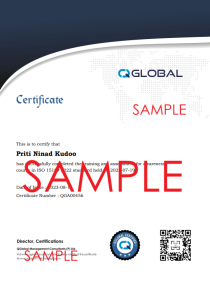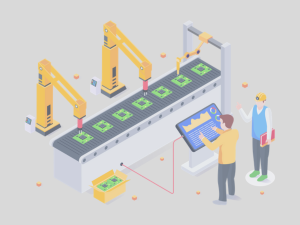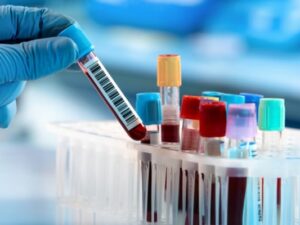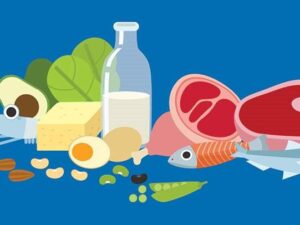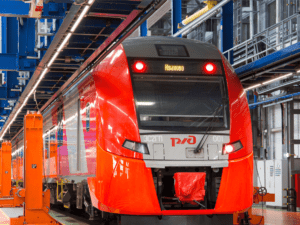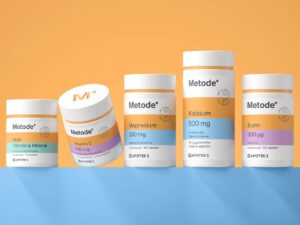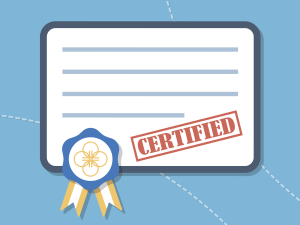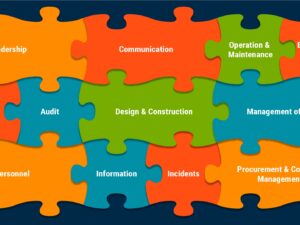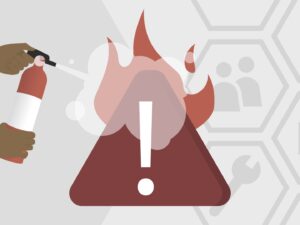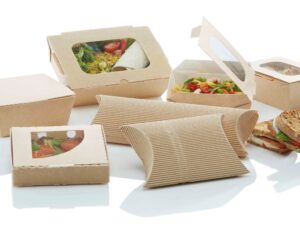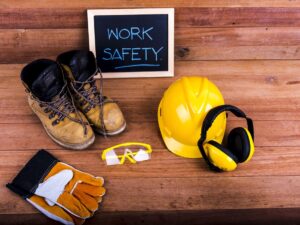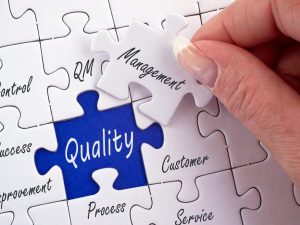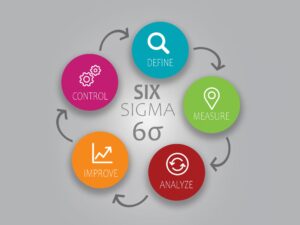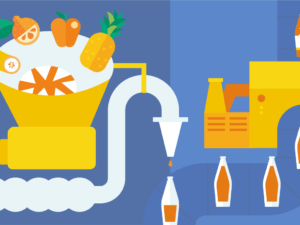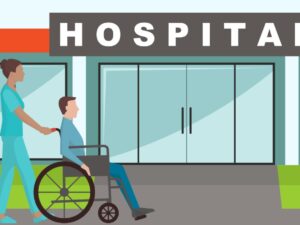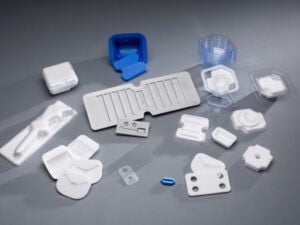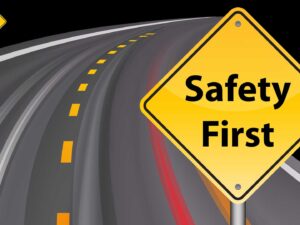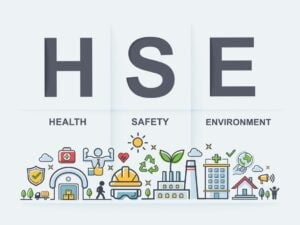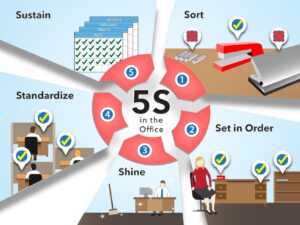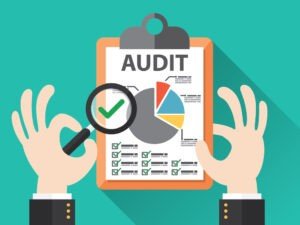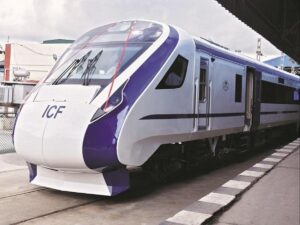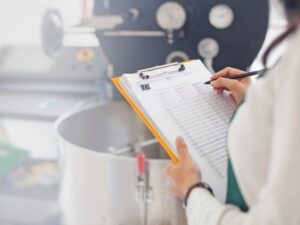FSSC 22000 V6 Food Safety System Certification - Awareness Course
- Description
- Curriculum

Keeping food safe from farm to fork by ensuring hygienic practices and traceability at every step of the supply chain are essential tasks for the food industry. FSSC 22000, Food safety management systems – Requirements for any organization in the food chain, sets out the requirements for a food safety management system. FSSC 22000 defines what an organization must do to demonstrate its ability to control food safety hazards and ensure that food is safe for consumption. The Foundation Food Safety System Certification 22000 (FSSC 22000) offers a complete certification Scheme for the auditing and certification of Food Safety Management Systems (FSMS) or FSMS and quality management systems (FSSC 22000-Quality). The requirements of FSSC 22000 standards can be applied to organizations involved in retails and wholesale, catering, transport and storage, food manufacturing, food packaging manufacturing, animal feed production and farming activities in the food chain. FSSC 22000 awareness course teaches you the process approach and the requirements and benefits of FSSC 22000. The essential objective of FSSC 22000 foundations course is to create awareness for participants regarding various basic requirements of the FSSC 22000 standard & impart working knowledge on how these requirements can be interpreted to suit the organization’s processes, products, people & customers.
Who Should Attend?
- Anyone involved in the planning, implementing, maintaining, supervising or auditing of an FSSC 22000 food safety management systems
- Jobseekers interested in understanding the best food safety management practices followed by the organizations
- Anyone looking to gain skills and knowledge to improve their organisation’s food safety management system
Key Benefits
- Understand the structure of FSSC 22000 standard
- Learn importance and benefits of an FSSC 22000 food safety management system
- Understand key requirements, terms and definitions of FSSC 22000
- Understand main concepts such as risk-based thinking, process approach and Plan-Do-Check-Act
- Prepare yourself to participate in FSSC 22000 standards implementation process
- Understand the method of managing food safety aspects, its impact and drive continual improvement
- Understand documents and records relevant to FSSC 22000 food safety management system , critical to the products and services delivered and those required to meet customer and regulatory requirements
- Fill gaps in your professional knowledge
Learning & Evaluation Method
This is a live and interactive course. Once you purchase the course, our team will contact you to plan the training. No matter where you are located, we schedule the classes based on your convenience and time zone. You can plan to attend the training in sessions of 4 or 8 hr duration, based on how much time you can spend in a day.
Certification
There are increasing numbers of organizations, who prefer candidates those who have certain certifications from recognized programs. Certification demonstrates your commitment to superior professionalism, upholding industry standards, and continued learning. These merits can help boost your professional credibility and prestige within your own network, in your organisation, with your current clients, and when pursuing new business opportunities. After the successful completion of the course and final exam, you will be awarded with a certificate of completion issued by QGlobal. Your credentials will be made available in the global online directory and can be verified by anyone searching with the certificate number. Without doubt we can say that our training courses are well recognized and sought after by organizations across various geographies.
Buy for group Are you planning to buy this course for a group? We have the best prices for you! Select ‘Buy for Group’ option and add to the cart. You will get a discount of 60 – 75% for a group of up to 10 participants. To make a group purchase, create your group name and add individual emails of up to 10 participants. Each participant will get the access to the course materials, exam and the certificate. We will arrange one live-online session for the entire group.
Total: 209 Courses View all
Total: 209 Courses View all
-
1Introduction to standards and certification
- Purpose of standardization
- Benefits of certification
-
2Introduction to ISO 22000 2018 standards
- Scope of ISO 22000
- Normative references
- Terms and definitions
-
3ISO 22000 Context of the organization
- Understanding the organization and its context
- Understanding the needs and expectations of interested parties
- Determining the scope of the food safety management system
- Food safety management system
-
4ISO 22000 Leadership
- Leadership and commitment
- Policy
- Establishing the food safety policy
- Communicating the food safety policy
- Organizational roles, responsibilities and authorities
-
5ISO 22000 Planning
- Actions to address risks and opportunities
- Objectives of the food safety management system and planning to achieve them
- Planning of changes
-
6ISO 22000 Support
- Resources
- People
- Infrastructure
- Work environment
- Externally developed environment of the food safety management system
- Control of externally provided processes, products and services
- Competence
- Awareness
- Communication
- External communication
- Internal communication
- Documented information
- Creating and updating
- Control of documented informationResources
- People
- Infrastructure
- Work environment
- Externally developed environment of the food safety management system
- Control of externally provided processes, products and services
- Competence
- Awareness
- Communication
- External communication
- Internal communication
- Documented information
- Creating and updating
- Control of documented information
-
7ISO 22000 Operation
- Operational planning and control
- Pre requisite programms (PRPs)
- Traceability system
- Emergency preparedness and response
- Handling of emergencies and incidents
- Hazard control
- Preliminary steps to enable hazard analysis
- Characteristics of raw materials, ingredients and product contact materials
- Characteristics of end products
- Intended use
- Flow diagrams and description of processes
- Preparation of the flow diagram
- On-site confirmation of flow diagrams
- Description of processes and process environment
- Hazard analysis
- Hazard identification and determination of acceptable limits
- Hazard assessment
- Selection and categorisation of control measures
- Validation of control measures and combinations of control measures
- Hazard control plan (HACCP/OPRP plan)
- Determination of critical limits and action criteria
- Monitoring systems at CCPs and for OPRPs
- Actions when critical limits or action criteria are not met
- Implementation of the hazard control plan
- Updating the information specifying the PRPs and the hazard control plan
- Control of monitoring and measuring
- Verification related to PRPs and action control plan
- Verification
- Analysis of results of verification activities
- Control of product and process non conformities
- Corrections
- Corrective actions
- Handling of potentially unsafe products
- Evaluation for release
- Disposition of non conforming products
- Withdrawal/Recall
-
8ISO 22000 Performance evaluation
- Monitoring, measurement, analysis and evaluation
- Analysis and evaluation
- Internal audit
- Management review
- Management review inputs
- Management review outputs
-
9ISO 22000 Improvement
- Nonconformity and corrective action
- Continual improvement
- Update of the food safety management system
-
10Introduction to ISO 22002 2019 standards
- ISO 22002-1:2009 Prerequisite programmes on food safety -- Part 1: Food manufacturing
- ISO/TS 22002-2:2013 Prerequisite programmes on food safety -- Part 2: Catering
- ISO/TS 22002-3:2011 Prerequisite programmes on food safety -- Part 3: Farming
- ISO/TS 22002-4:2013 Prerequisite programmes on food safety -- Part 4: Food packaging manufacturing
- ISO/NP TS 22002-5
- ISO/TS 22002-6:2016 Prerequisite programmes on food safety -- Part 6: Feed and animal food production
-
11PRPs from ISO 22002-1 2019 standards
- ISO 22002-1:2009 Prerequisite programmes on food safety -- Part 1: Food manufacturing
- ISO/TS 22002-2:2013 Prerequisite programmes on food safety -- Part 2: Catering
- ISO/TS 22002-3:2011 Prerequisite programmes on food safety -- Part 3: Farming
- ISO/TS 22002-4:2013 Prerequisite programmes on food safety -- Part 4: Food packaging manufacturing
- ISO/NP TS 22002-5
- ISO/TS 22002-6:2016 Prerequisite programmes on food safety -- Part 6: Feed and animal food production
-
12PRP 16 – Construction and layout of building
-
13PRP 08 – Utilities – air, water, energy
-
14PRP 12 – Waste disposal
-
15PRP 15 – Equipment suitability, cleaning and maintenance
-
16PRP 14 – Layout of premises and workspace
-
17PRP 13 – Management of purchased material
-
18PRP 05 – Measures for prevention of cross contamination
-
19PRP 10 – Cleaning and sanitizing
-
20PRP 11 – Pest control
-
21PRP 09 – Personal hygiene and employee facilities
-
22PRP 07 – Storage and warehousing
-
23PRP 06 – Traceability
-
24FSSC 22000 Management of services and purchased material
- Laboratory competency
- Procurement in emergency situations
- Procurement of fish, animals and sea food that are subject to control of prohibited substances
-
25FSSC 22000 Product labeling
- Legibility Requirements
- Food Identification Requirements
- Labelling of ingredients
- Labeling food additives
- Label review
-
26FSSC 22000 Food defense
- Threat assessment
- Plan
-
27FSSC 22000 Food fraud mitigation
- Vulnerability assessment
- Plan
-
28FSSC 22000 Logo use
-
29FSSC 22000 Management of allergens
- Supplier and raw material control
- Material storage
- Plant traffic flow
- Color-coding systems for utensils used with allergens
- Production scheduling
- Labeling
- Cleaning
- Use of rework
- Employee education
-
30FSSC 22000 Environmental monitoring
-
31FSSC 22000 Formulation of products
-
32FSSC 22000 Transportation and delivery
-
33FSSC 22000 Storage and warehousing
-
34FSSC 22000 Hazard control and measures for preventing cross-contamination
-
35FSSC 22000 PRP verification
-
36FSSC 22000 Product development
-
37FSSC 22000 Health status

